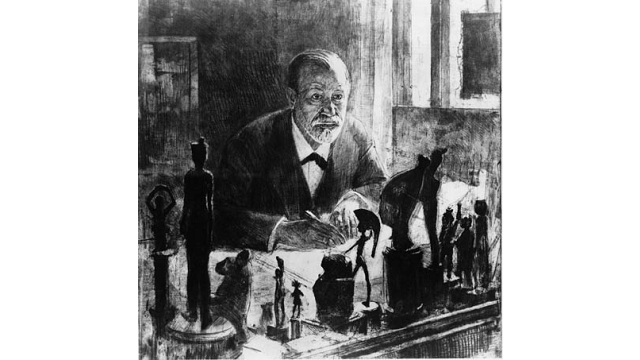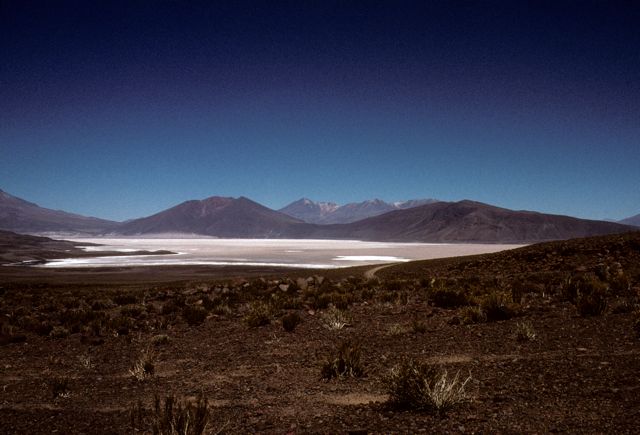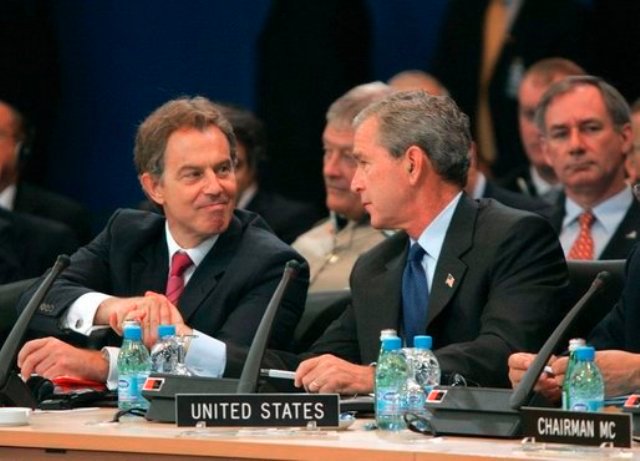When we think of Sigmund Freud, we think first of words—the “talking cure” of psychoanalysis, books such as The Interpretation of Dreams, and the infamous Freudian slip. In Mirrors of […]
All Articles
I spend more time than a sane person should wending my way through conservative, liberal and moderate political blogs to keep an eye on the latest groupthink on the web. […]
We have this perception that most cheating that goes on in marriage is among the extremely wealthy. Well, of course we do. When a man in the bottom of the […]
Sustainable underwear line PACT, from designer Yves Behar of One Laptop Per Child fame, has just introduced Creative Growth – a limited-edition collection in partnership with Creative Growth Art Center, […]
Ezra Klein calls our attention in his regular Wonkbook feature—which is a must-read, by the way—to a paper by economists Carmen and Vincent Reinhart looking at how long it takes […]
I know many of you have been a little frustrated by the transition here and especially your ability to leave comments effectively. I understand and appreciate your frustrations – any […]
“Climate change could reduce key harvests in China by a fifth if the gloomiest scenarios prove true, according to a study on Wednesday.” Scientists say China is warming at a fast pace.
“France’s ongoing deportation of [Romanian gypsies] has been making headlines around the globe. But Gitans—as they are known in France—have been living in the country for centuries.”
The unspoken history of China: “Between 1959 and 1962, at least forty-three million Chinese died. Most died of hunger, over two million were executed or were beaten or tortured to death.”
“We can’t afford to forget now that the single biggest legacy of the Iraq war at home was to codify the illusion that Americans can have it all at no cost,” says Frank Rich at The New York Times.
“Those who argue we should decriminalise the trade in narcotics are blind to the catastrophic consequences,” says Antonio Costa, executive director of the U.N. Office on Drugs and Crime.
The director of the National Institute of Health is a Christian who supports accelerating embryonic stem-cell research. The New Yorker profiles the man who draws fire from all sides.
“Mexican drug lords exist to feed the U.S. drug market. And they get their guns through the U.S. weapons market.” The CSM says the U.S. bears the brunt of moral responsibility.
“In recent months some rich-world economies (notably Germany’s) have basked in the sunshine even as the clouds gathered over America.” Not all strong economies are equal.
“Not every great metropolis is going to make a comeback. Planners consider some radical ways to embrace decline.” What will become of cities like Detroit and Cleveland?
“No matter what the critics say, oil revenue and foreign investment will guide Iraq to prosperity.” Ian Bremmer on what will become of Iraq once American troops leave.
Everyone is mesmerized by Apple’s ability to revolutionize the way we think about IT products. With the iPhone, for example, Apple has morphed a mere communication device into a platform […]
AS the dust begins to settle on an extraordinary week dominated by the astonishing spectacle of a former Prime Minister peddling memoirs whose vulgarity and venality thoroughly demeans the office […]
It’s a big holiday weekend here in the U.S., so there’s a good chance that before or after reading this, you’ll be driving around lost. If you are a man, […]
My 1G phone was working just fine. The Super Glue was still holding the curved piece of plastic along the top of my five year old flip phone, a piece […]
“The Zen teacher Thich Nhat Hanh explains in his new book how a Buddhist approach could benefit ecology.” The Guardian’s environmental blog explains the Buddhist’s take on nature.
“There is no room in the universe of Hawking or most other scientists for the activist God of the Bible.” Philosopher Julian Baggini charts the evolution of Western religion’s deity.
Given a visual illusion with two interpretations, like the duck and the rabbit, our brain will switch between meanings. The phenomenon is an important evolutionary mechanism, say neurologists.
When a journalist mistakenly wore shorts to visit Guantanamo Bay, he was refused entry into the prison. Instead, he was taken to the library where the prisoners’ art was hung on display.
As California prepares to vote on a ballot initiative essentially legalizing marijuana, The Atlantic looks at the pop music—from Louis Armstrong to Ben Harper—that found peace with the drug.
“The former English prime minister Tony Blair argues the West has become too imbued with doubt and lacking in mission.” Blair’s new memoir speaks on restoring purpose to government.
“Is human uniqueness really nothing more than a neurological phenomenon?” A philosopher and author calls neurology’s entry into the human sciences the emergence of ‘neurotrash’.
“Like Southern Europe, the US economy must move away from the consumption/housing-led growth model of the last decade.” Can stimulus facilitate a structural change in the economy?
“The Internet has been a great unifier of people, companies and online networks. Powerful forces are threatening to balkanise it.” The Economist on the future of the Internet.
The Simple Dollar blog reviews nine ways to accomplish more by working smarter, not harder. Conquering technology and building stronger relationships are two recommendations.









